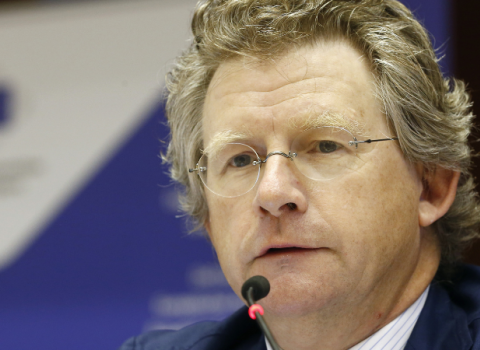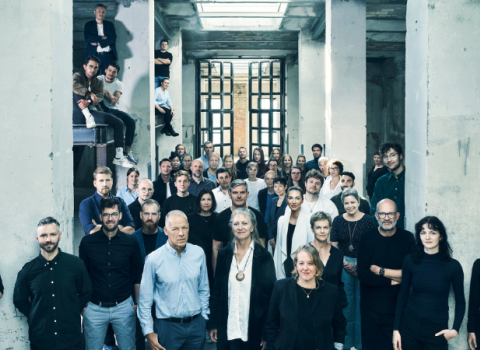A partnership with the Central European Research Infrastructure Consortium is one of the latest moves to try and improve success rates in getting finance from the EU start-up funder

A new partnership between the Central European Research Infrastructure Consortium (CERIC) and the European Innovation Council (EIC) is aiming to give a boost to start-ups and entrepreneurs in a region that to date has had limited success in winning EIC grants.
For the EIC, the partnership with CERIC will give its grantees access to top research infrastructures, which they can apply to use via the EIC’s catalogue of services.
From CERIC’s point of view, the link with EIC expands the number of clients for its research services and gives it greater exposure to the European market as a whole. It is also promises to benefit the regions in which the research infrastructures are based. Of the eight countries hosting CERIC facilities, six are Widening countries.
Angela Zennaro, senior industrial liaison and technology transfer officer at CERIC, hopes the partnership increases awareness of the EIC and helps to bridge Europe’s east-west innovation gap. “The partnership gives the EIC more visibility in Widening countries and exposes more of our users to EIC programmes, so it is a perfect match,” she said.
The partnership was set up under the Ecosystem Partnerships programme, established by the EIC in 2021 to help EIC grant winners to tap into wider business or research support.
Starting in the second quarter of 2024, EIC will have a fund covering up to 50% of the costs of using services from ecosystem partners such as CERIC. Currently the costs are covered by beneficiaries themselves or through their EIC grant.
Increasing participation
The EIC is aware of the challenge Widening countries face in accessing its start-up finance and has set a target to double the participation rate across all three of its programmes to 15%. The latest figures show that so far under Horizon Europe the success rate for the 15 EU Widening countries is 10.8%.
Countries such as Germany, France and Spain all individually have a higher participation rate in EIC programmes than all 15 Widening countries combined.
In July this year EIC set out six recommendations it said would increase participation in its programmes from Widening countries. These include greater information sharing, training, better identification of high potential companies in Widening countries, and increasing the ratio of EIC jury members from Widening countries from below 20% to at least 30%.
The European Commission is also aware of the problem and is looking into creating a pre-accelerator programme to help start-ups and entrepreneurs from Widening countries win funding from the EIC’s Accelerator programme.
Manuel Aleixo, head of the European Research Area and Innovation unit at the Commission’s research directorate, spoke about this at the Science|Business Widening conference in September this year.
“Are there no companies in Widening countries that are willing, capable or interested in applying to the accelerator? Of course there are,” Aleixo said. “We are just not getting that pipeline there, so we need to work on that.”
Unconscious bias
The reasons Widening countries have had limited success getting EIC money are many and varied
Zennaro says one is cultural, with scientific achievements praised and rewarded more than innovation. “There is also a lack of success stories that encourage innovation and the entrepreneurial mindset in Widening countries,” she said.
Ana Barjasic, EIC board member and chair of its working group on Widening participation, said while the issues vary, there are some broad challenges. The more basic problems can be about a lack of resources or support services for entrepreneurs. Or, national contact points lack knowledge or are not informed. “A lot of companies [in Widening countries] don’t know the EIC exists,” Barjasic said.
Another factor is that there are very few experienced consultants in Widening countries, fees for them can be too high and the terms of engagement not clear. In November EIC published a code of conduct for consultants to try to increase transparency.
There are other, more subtle, issues. For example, a recent study EIC conducted with the London School of Economics showed EIC evaluators displayed unconscious bias based on applicants’ country of origin.
The EIC is responding by creating a de-biasing toolkit that involves behaviour training for evaluators.
Barjasic said it is important to the EIC that the issue of Widening participation is resolved as quickly as possible. “To really have Europe united, we need to include all of Europe,” she said. “We want excellent companies in the EIC, but we also need to ensure that all excellent European companies have the conditions to apply.”
Barjasic is optimistic that by opening up access to research facilities CERIC’s partnership with the EIC will promote innovation in Widening countries. “Primarily, it is de-risking innovation,” she said. “Through the research infrastructure […] you de-risk, you certify something works, or you find issues that might be there, and in that case you can improve it. This helps to attract investors and clients,” she said.
Since CERIC was launched in 2014, 29% of all accepted proposals have been from Widening countries. “As you can see, considering that CERIC gives access to researchers from all over the world, the percentage is quite high,” Zennaro said.
CERIC is planning further connections to the EIC, such as potentially getting involved in its next generation innovation talents internship scheme, to give researchers the chance to gain more on-the-ground experience.
The partnership between EIC and CERIC “is not only to offer our services to EIC beneficiaries,” said Zennaro. “We have already foreseen future synergies to support the involvement of players from Widening countries in EIC opportunities.”





 A unique international forum for public research organisations and companies to connect their external engagement with strategic interests around their R&D system.
A unique international forum for public research organisations and companies to connect their external engagement with strategic interests around their R&D system.